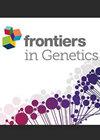Bidirectional two-sample Mendelian randomization analysis investigates causal associations between cathepsins and inflammatory bowel disease
IF 2.8
3区 生物学
Q2 GENETICS & HEREDITY
引用次数: 0
Abstract
BackgroundCathepsins, key regulators of the pathology of gastrointestinal disorders such as inflammatory bowel disease (IBD), are a target protease that has attracted much attention in recent years. IBD is a chronic and relapsing inflammatory disorder of the gut. Traditional studies have shown a correlation between cathepsin and the risk of IBD, while the causal relationship remains unclear.MethodsThis study utilized Mendelian randomization techniques to evaluate the causal relationships between eleven cathepsins and the subtypes of IBD, such as ulcerative colitis (UC) and Crohn’s disease (CD). We also performed a series of sensitivity analyses to validate the primary Mendelian randomization (MR) results, including Cochran’s Q test, the MR-PRESSO global test, and the MR pleiotropy test.ResultsThe forward MR analyses showed no significant association between cathepsins and IBD. Reverse Mendelian randomization analyses suggested that UC might lead to elevated cathepsin G levels [inverse-variance weighted (IVW):双向双样本孟德尔随机分析法研究 cathepsins 与炎症性肠病之间的因果关系
背景胰蛋白酶是炎症性肠病(IBD)等胃肠道疾病病理学的关键调节因子,是近年来备受关注的靶蛋白酶。IBD 是一种慢性、复发性肠道炎症性疾病。本研究利用孟德尔随机化技术评估了 11 种胰蛋白酶与溃疡性结肠炎(UC)和克罗恩病(CD)等 IBD 亚型之间的因果关系。我们还进行了一系列敏感性分析,以验证主要的孟德尔随机化(MR)结果,包括 Cochran's Q 检验、MR-PRESSO 全局检验和 MR 多向性检验。反向孟德尔随机分析表明,UC 可能导致 cathepsin G 水平升高[逆方差加权(IVW):p = 0.038,b = 9.966],而 CD 可能导致 cathepsin B 水平下降[IVW:p = 0.002,b = -10.525]。结论我们的研究结果为 UC 或 CD 对胰蛋白酶的影响提供了新颖而全面的证据,有可能为 IBD 的治疗和预后提供有价值的见解。
本文章由计算机程序翻译,如有差异,请以英文原文为准。
求助全文
约1分钟内获得全文
求助全文
来源期刊

Frontiers in Genetics
Biochemistry, Genetics and Molecular Biology-Molecular Medicine
CiteScore
5.50
自引率
8.10%
发文量
3491
审稿时长
14 weeks
期刊介绍:
Frontiers in Genetics publishes rigorously peer-reviewed research on genes and genomes relating to all the domains of life, from humans to plants to livestock and other model organisms. Led by an outstanding Editorial Board of the world’s leading experts, this multidisciplinary, open-access journal is at the forefront of communicating cutting-edge research to researchers, academics, clinicians, policy makers and the public.
The study of inheritance and the impact of the genome on various biological processes is well documented. However, the majority of discoveries are still to come. A new era is seeing major developments in the function and variability of the genome, the use of genetic and genomic tools and the analysis of the genetic basis of various biological phenomena.
 求助内容:
求助内容: 应助结果提醒方式:
应助结果提醒方式:


